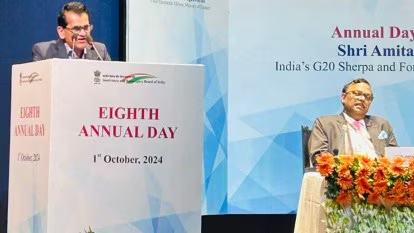
The new one-year internship scheme
In a significant push for reform, Amitabh Kant, former CEO of NITI Aayog and G20 Sherpa, recently proposed that India should consider outsourcing the management of insolvency court processes to private players. Speaking at the Insolvency and Bankruptcy Board of India’s (IBBI) annual meeting, Kant emphasized that such measures could greatly reduce delays and enhance recovery rates for creditors, urging the government to initiate a comprehensive review of the Insolvency and Bankruptcy Code (IBC).
Current Challenges in the Insolvency System
The urgency for reform stems from alarming statistics regarding the efficiency of the current insolvency resolution system. According to data from the IBBI, the average time taken for insolvency resolutions at the National Company Law Tribunal (NCLT) has risen significantly, reaching 716 days in FY24, compared to 654 days the previous year. Additionally, the time required for admitting new insolvency cases has ballooned from 468 days in FY21 to 650 days in FY22. These delays negatively impact creditor recovery, which plummeted from 36% in FY23 to just 27% in FY24.
Outsourcing as a Strategic Solution
To tackle these inefficiencies, Kant proposed the introduction of private players into court management. This approach would free up judicial resources and allow judges to concentrate on essential legal matters, potentially expediting the insolvency process. Drawing a parallel to the effective operation of Passport Seva Kendras, he asserted that private management could lead to improved administrative efficiency and ultimately better outcomes for all stakeholders involved.
Reforming the Insolvency and Bankruptcy Code (IBC)
Kant underscored the necessity for a second wave of reforms to the IBC. He called for amendments that not only clarify critical legal principles but also introduce mechanisms for cross-border insolvency. As Indian businesses increasingly participate in global markets, a structured approach to handling insolvency cases across borders becomes essential. Such a framework would enhance legal certainty for creditors and facilitate smoother resolutions in international scenarios.
Amitabh Kant’s recommendations for overhauling India’s insolvency management system highlight a critical juncture in the nation’s economic landscape. By outsourcing court management to private players and revising the IBC to accommodate cross-border insolvency, India can enhance the efficiency of its insolvency resolution processes. These changes will not only improve creditor recovery rates but also foster a more resilient economic environment. As discussions evolve around these proposals, the collaboration of legal, business, and governmental stakeholders will be paramount to ensure the successful implementation of these vital reforms.